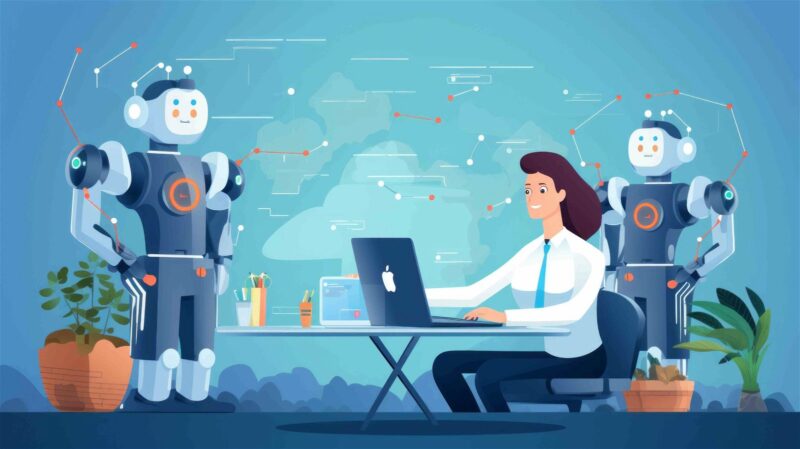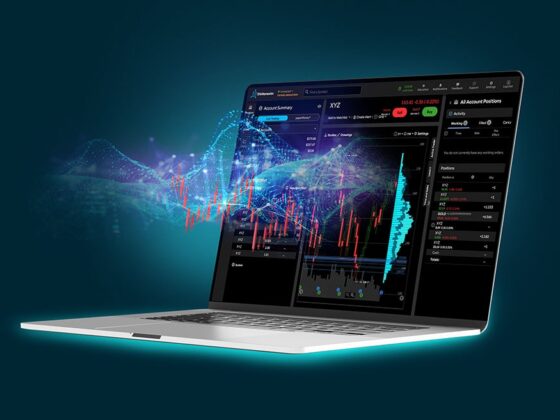In an age where efficiency is paramount and time is a precious commodity, artificial intelligence has emerged as a transformational force in task management within the workplace. Gone are the days of juggling multiple responsibilities with the help of rudimentary tools and endless to-do lists.
Today, AI-driven solutions are not just reshaping how tasks are organized; they’re redefining the very essence of productivity itself. Imagine a virtual assistant that learns your preferences, anticipates your needs, and helps you prioritize tasks with unparalleled precision.
As organizations seek to streamline operations and empower their workforce, AI stands at the forefront, enabling employees to focus on what truly matters. Through intelligent algorithms and data-driven insights, the future of task management is evolving rapidly, promising a more dynamic and harmonious workplace where collaboration flourishes and innovation thrives.
Enhancing Productivity Through Automation

Automation has emerged as an indispensable ally in enhancing workplace productivity, transforming the landscape of task management in ways once deemed unimaginable. Imagine a world where routine tasks are seamlessly handled by intelligent systems, relieving employees of repetitive duties and allowing them to channel their creativity into higher-level projects.
Automated scheduling tools can optimize meeting times with precision, while AI-driven algorithms analyze workflows to identify bottlenecks and recommend improvements. This newfound efficiency not only accelerates project timelines but also fosters a culture of innovation, enabling teams to pivot swiftly in response to evolving demands.
As a result, the human workforce can focus on strategic thinking and collaborative problem-solving, liberating their potential and redefining what is achievable in the modern workplace.
Predictive Analytics for Better Task Outcomes

Predictive analytics is transforming task management by harnessing the power of data to foresee outcomes and streamline workflows. Imagine a scenario where algorithms sift through mountains of historical data, identifying trends and patterns that can guide decision-making in real time.
This isn’t just about number-crunching; it’s about empowering teams to allocate resources more effectively and anticipate potential bottlenecks before they disrupt productivity. For instance, AI can analyze how long similar tasks have taken in the past, predicting the best allocation of personnel and time, thereby enhancing efficiency.
As a result, teams are not merely reacting to problems as they arise; they are proactively shaping their strategies, leading to higher success rates and more timely completions. In a world where agility is key, predictive analytics ensures that task management evolves from an art into a science, arming organizations with insights that drive better outcomes.
Future Trends in AI-Driven Task Management
 As we look to the future of AI-driven task management, a mosaic of trends will undoubtedly emerge, reflecting the dynamic needs of an evolving workplace.
As we look to the future of AI-driven task management, a mosaic of trends will undoubtedly emerge, reflecting the dynamic needs of an evolving workplace.
Intelligent automation will effortlessly blend with human intuition, forging a symbiotic relationship where machines handle mundane tasks, freeing employees to engage in creative, high-level decision-making. Imagine advanced AI systems that learn from user interactions, predicting needs and suggesting optimizations before a task is even initiated.
Moreover, collaboration tools enhanced by augmented reality could redefine teamwork, allowing dispersed teams to share a virtual workspace where tasks are visualized in real-time. With the rise of personalized AI assistants, each employee may soon have a bespoke productivity coach, tailored to individual workflows and preferences.
Meanwhile, the integration of emotional intelligence into task management will pave the way for tools that not only analyze productivity but also monitor well-being, ensuring a harmonious balance between efficiency and employee satisfaction. In this brave new world, AI is set to become not just a facilitator of task management but an indispensable partner in driving workplace innovation and enhancing human potential.
Conclusion
In conclusion, the integration of AI into task management is reshaping workplace dynamics in unprecedented ways. As organizations increasingly adopt autonomous AI agents, they are not only streamlining processes but also enhancing productivity and collaboration among teams. These intelligent systems take on routine tasks, allowing employees to focus on more strategic initiatives and creative problem-solving.
As this technological revolution continues to evolve, businesses that leverage AI will undoubtedly gain a competitive edge, fostering a more efficient, innovative, and agile work environment. Embracing these advancements is essential in navigating the complexities of modern work, ultimately leading to a more empowered workforce and improved overall performance.


